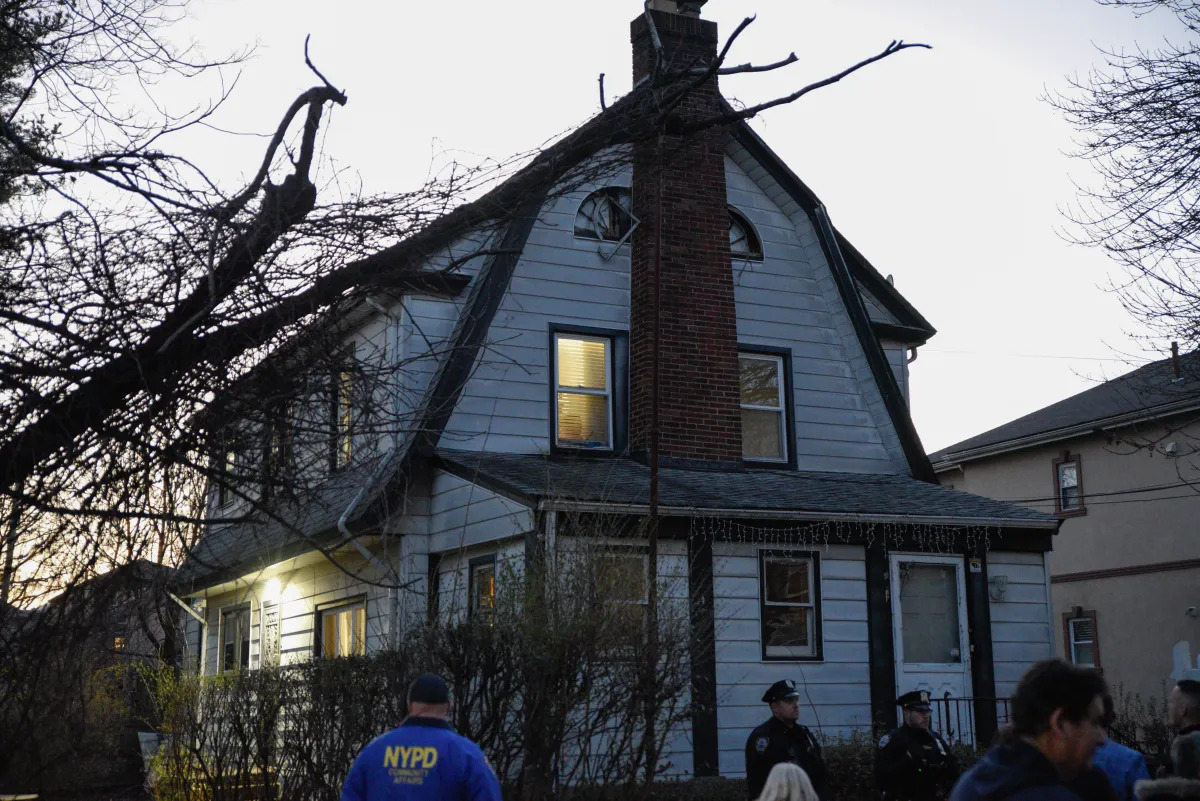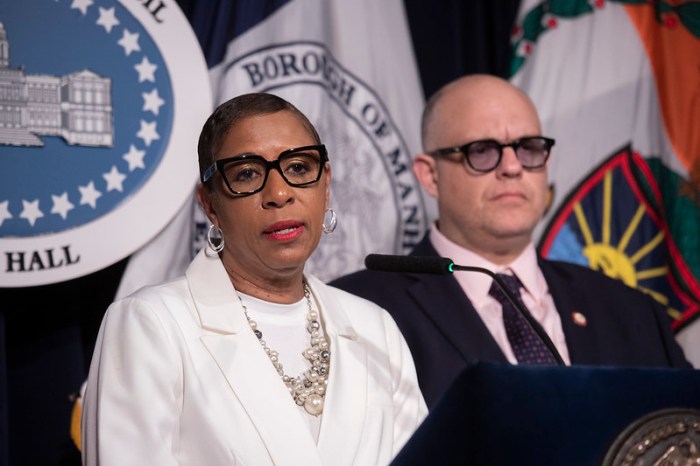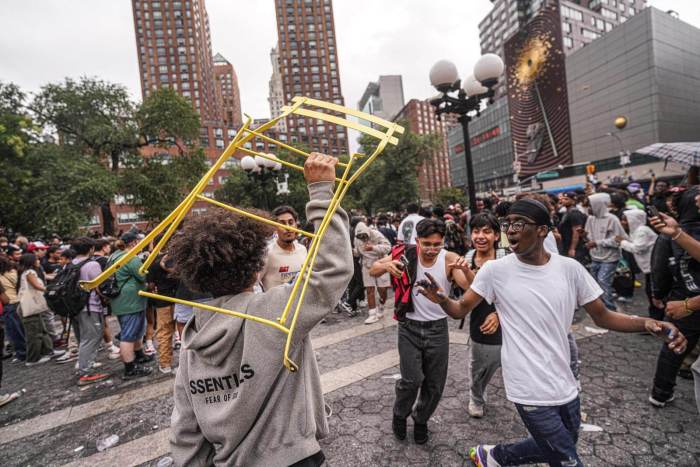
Pace University students walked out of class Thursday to demand that school administrators strengthen policies relating to sexual abusers on campus.
Clad in raincoats, clutching umbrellas and holding signs that read “#MeToo,” more than 100 students rallied outside One Pace Plaza in support of Pace senior Ariella Riapos, who recently voiced her story of sexual abuse by a former boyfriend in a Facebook post, leaving many in the crowd in tears.
“We are here to demand that our university takes our issues seriously and does whatever they can to protect us,” Riapos, 22, told the crowd, while perched atop a ladder and holding a megaphone. “We are here to demand that we have a safe college experience.”
She said that as a freshman, she was emotionally and sexually abused by a former male student, who later proceeded to stalk her for two years. She said she reported him to school authorities, but did not feel that she was given sufficient support.

The male student, who Riapos said is a year older than she is, is no longer enrolled at Pace University, according to a school spokeswoman. The school took action against him and he did not graduate, the spokeswoman said, adding that Pace is limited in what information it can discuss about possible student disciplinary actions.
Riapos said that the response from officials was “too little too late.” She, along with members of the PaceUEndRape student coalition, delivered a list of demands to Marijo Russell-O’Grady, dean of students, on April 11.
Their demands, which one faculty member attending the rally deemed “very reasonable,” range include emailing the name and photo of every “persona non grata,” or PNG, to the student body at the start of every semester; and employing at least 10 full-time members in the school’s Office of Sexual Assault Prevention and Education.
Currently, that office has one full-time employee at the city campus, a school spokeswoman confirmed.
“We welcome the opportunity to consider and implement changes that address your policy recommendations,” reads an email sent Wednesday by Russell-O’Grady in response to the group’s demands, according to Marie Ternes, executive director of media relations at Pace University.

“We have and continue to support policies that protect our students and help make them safe,” Ternes said in an emailed statement. “Pace University actively participated in New York State’s efforts to improve and strengthen state regulations related to sexual assault on college campuses and we have been at the forefront of implementing improvements in policies and procedures that ensure thorough and fair investigations while enhancing victim support resources.”
Several students and faculty members eyed the dean of students standing across the street from the ralliers, taking photos of the gathering from a distance.
Shaking her head at the official’s lack of participation, Stephanie Hsu, a professor in the university’s Dyson College of Arts, said there is a lack of accountability and that “the administration is hoarding information to protect itself.”
Echoing Hsu, another professor, Sid Ray, said officials were concerned with protecting the school from negative media coverage and keeping controversial incidents “in house.”
“It’s like ‘Let these people graduate and then the next batch comes in and they don’t have the memory of it.’ But we do, as faculty,” Ray, who teaches Women and Gender Studies.
The important thing is to shift the university’s risk management policy, added Sarah Blackwood, director of American Studies.
“When it becomes more risky to ignore something like this than it is to press it down, change occurs,” she said. “That’s what the students’ strategy is here.”

















